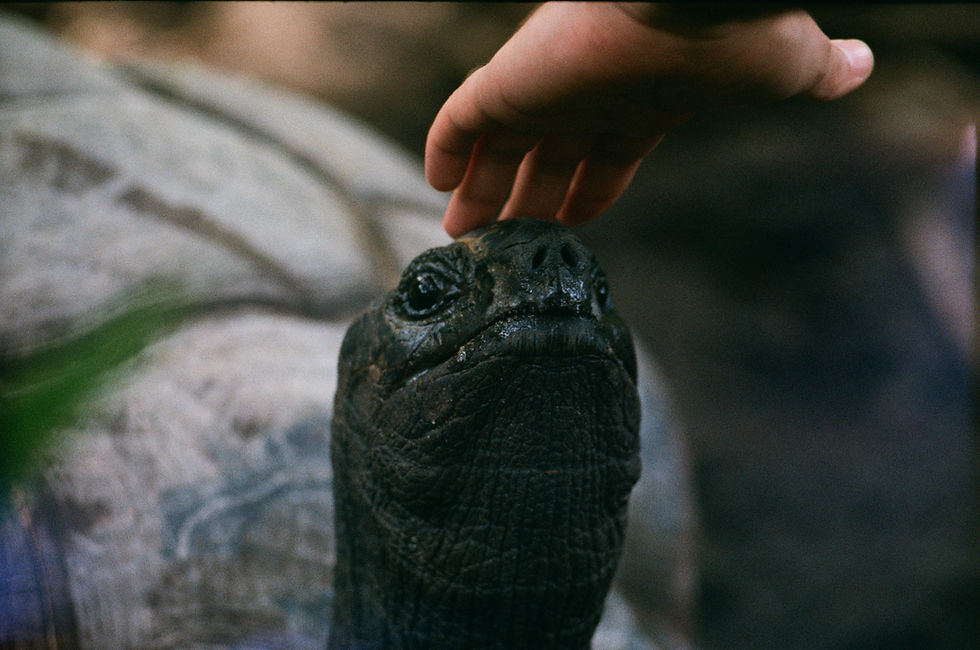- Jan 9
- 3 min read
"I've been diving since before we heard of rebreathers or dive computers," chuckles Margaret, a vibrant 72-year-old diver, as she checks her equipment for her upcoming dive.
The dawn mist is just lifting as Margaret and her diving buddy Robert, 68, prepare for their weekly dive. They're part of a growing community that's challenging the stereotype of what a "typical" diver looks like. With decades of experience between them, they represent an often-overlooked truth in the diving world: age is just a number.
As Dan Orr, former President of Divers Alert Network (DAN) and a respected voice in diving safety with over 60 years of diving experience, emphasizes: diving is a transformational sport that makes a difference in people's lives regardless of age. His extensive career, from his first certification in 1964 to his leadership at DAN until 2013, provides valuable perspective on how the sport has evolved to become more inclusive and safety-focused for divers of all ages.
He notes, "The older diving population has been, and will continue to be for some time, a huge market that has not been taken seriously." His observation is backed by surprising statistics - over 65% of active divers are above 40, with many diving well into their 70s and beyond.
"People often ask me when I'll stop diving," Margaret says, adjusting her mask. "I always tell them the same thing - I'll stop when my doctor tells me to, not when my birthday cake gets too crowded with candles."
The truth is, there's no upper age limit for diving. What matters isn't the year on your birth certificate, but your physical fitness and health status. As more divers like Margaret and Robert demonstrate, with proper medical screening, regular exercise, and sensible diving practices, the underwater world remains accessible at any age.

Health, Not Age, Determines Diving Fitness
While it's true that health conditions that may affect diving safety become more common with age, it's these conditions - not age itself - that determine whether someone can dive safely. Some 80-year-olds may be perfectly fit to dive, while some 50-year-olds might have health issues that preclude diving.
Key Considerations:
Physical fitness level
Cardiovascular health
Overall medical condition
Comfort and confidence in the water
Current skill level
Recent Statistics and Safety
The focus on older diver health stems from data showing:
55.2% of diving-related fatalities linked to cardiac events
Higher representation of over-45 divers in accident statistics
However, these statistics reflect the need for proper health monitoring, not age restrictions.
Essential Safety Practices:
Regular Medical Screening
Annual physical examinations
Cardiac evaluations when appropriate
Open communication with diving physicians
Maintaining Diving Fitness
Regular exercise
Appropriate weight management
Staying active between dives
Regular skill practice
Success Strategies for Older Divers:
Choose diving conditions within your comfort level
Stay well-hydrated
Plan conservative dive profiles
Listen to your body
Maintain regular diving frequency
Keep equipment well-maintained and suitable for your needs
Return to Diving Strategy for those returning after a break:
Start with refresher courses
Begin with local diving sites
Practice emergency skills in controlled environments
Gradually build up to more challenging dives
The Benefits of Local Diving:
Familiar environments and well known buddies
Convenient access
Regular skill maintenance
Strong community connections
Lower stress diving conditions
The Diving Community
The diving community is experiencing a significant demographic shift that challenges common perceptions. While the industry often focuses on younger divers, data reveals a surprising truth: 65.7% of active divers are over 40 years old. This demographic represents not just a significant portion of the diving community, but also a valuable opportunity for the diving industry.
Understanding the Older Diver Profile:
Many divers return to the sport post-retirement
Often has more flexible time commitments
Possesses strong motivation to return to or continue diving
Many hold certifications from 20-40 years ago
Experienced older divers often become valued mentors
Strong social connections through diving clubs
Typically more financially stable
Generally has more resources for equipment and travel

Looking Forward
The diving industry recommendations to continue to evolve to support divers of all ages:
Adaptive equipment options
Age-appropriate training programs
Focus on individual capability rather than age
Strong support networks
Remember: Diving is a lifetime sport that can be enjoyed safely at any age with proper health maintenance and risk management. The key is honest self-assessment, regular medical evaluation, and maintaining appropriate fitness levels for the type of diving you enjoy.
As Dan Orr's career and continuing contributions to diving safety demonstrate, age can bring valuable experience and wisdom to the diving community. His journey from early diving with basic equipment to becoming a leading voice in diving safety exemplifies how older divers can contribute significantly to the sport. Through his consulting work and advocacy, Orr continues to emphasize that diving should be accessible to everyone who maintains appropriate fitness and health standards, regardless of age.







